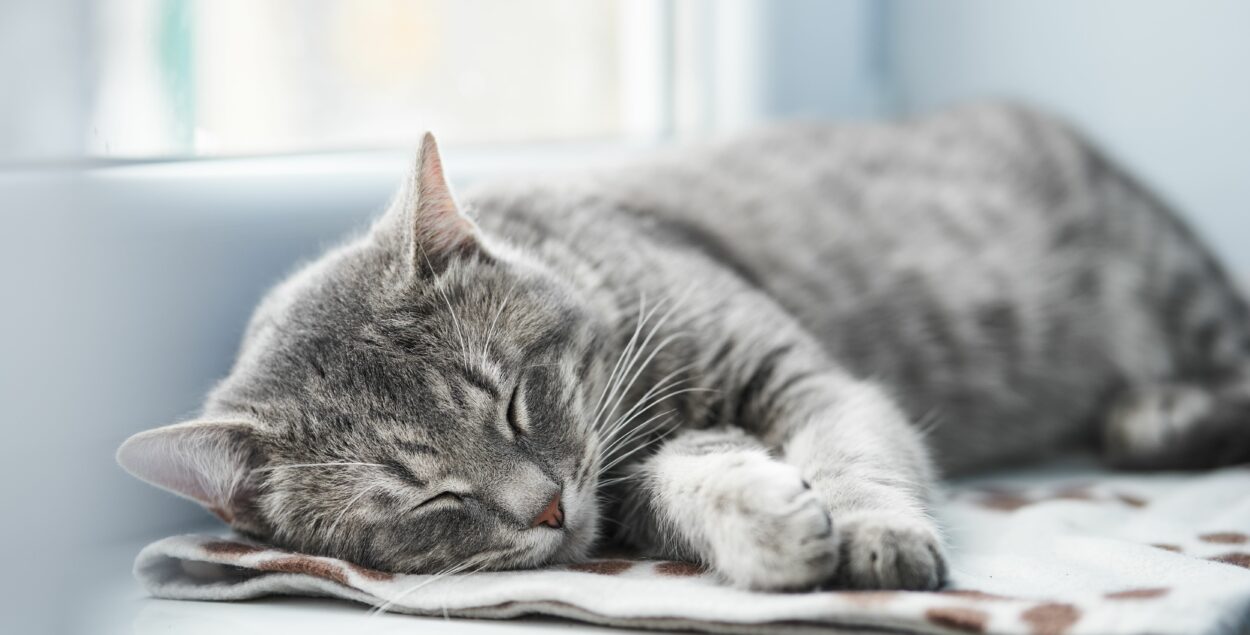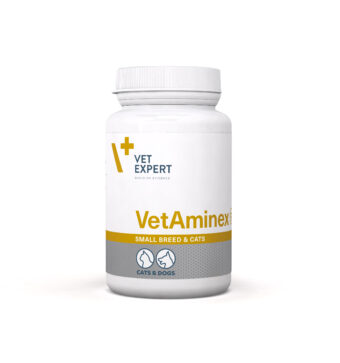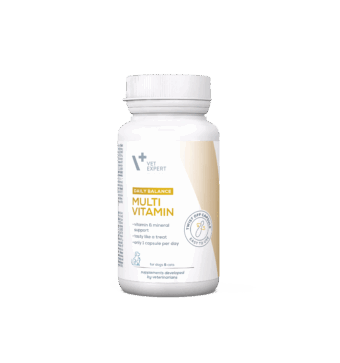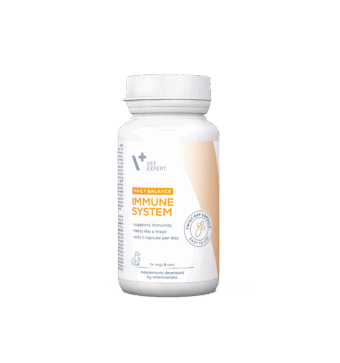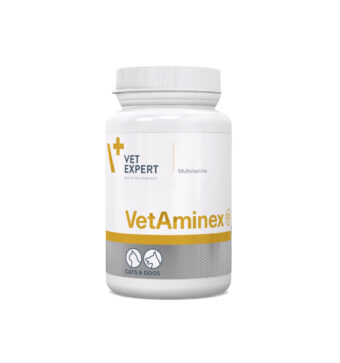The health and well-being of our pets largely depend on the proper functioning of the immune system. It is worth taking care of its strengthening not only in autumn and winter.
How does the immune system work?
The immune system is responsible for the immunity of dogs and cats, which is made up of several organs and cells. It is the first barrier that protects the animal against pathogens.
The body’s immunity can be divided into:
- congenital (non-specific) – its task is to prevent the penetration of the pathogen into the body, the response to the stimulus is very quick, but it does not induce immunological memory (the body will not react faster in the case of re-infection)
- active non-specific immunity (active removal of microorganisms through coughing, sneezing, diarrhoea)
- passive nonspecific immunity (preventing the penetration of microorganisms through the skin and mucous membranes barrier)
- acquired (specific) – its response develops more slowly, requires contact with an antigen (an antigen is a substance that is recognized by the body, mobilizes it to produce antibodies against a specific pathogen), and is remembered by the immune system
- specific active immunity (e.g. antibodies transferred with the mother’s milk)
- passive specific immunity (previous infections and preventive vaccinations)
Your pet’s health depends on all of the above immune mechanisms working properly.
Causes of lowered immunity in dogs and cats
As with humans, your pet may experience a decline in immunity during the fall/winter solstice. This is not the only time your pet may have a weakened immune system:
POORLY BALANCED DIET – A poor diet that does not provide your pet with essential nutrients such as proteins, fats, unsaturated fatty acids, vitamins and minerals weakens the non-specific immune system barrier. This allows pathogens to enter the body of the dog or cat more easily.
PARASITIC INVASIONS – toxins secreted by parasites poison the animal’s organism, causing a decrease in immunity and weakening of the organism.
CHRONIC STRESS – during prolonged stress, cortisol is produced – the so-called stress hormone that mobilizes the pet’s body to be constantly ready for the anticipated threat. Unfortunately, this puts a heavy burden on the body and interferes with many processes – including the functioning of the immune system.
ANIMAL AGE – remember that your pet’s immunity may weaken with age, so be especially careful to strengthen it if you have a senior home. Young animals may also need extra support – especially before and during vaccinations and when changing homes.
How to support the immune system?
Your dog’s or cat’s immune system will be much better at dealing with infections if their diet is balanced and rich in substances that support the body’s natural defenses. Beta-glucan has such properties, among others, in combination with HMB (3-hydroxy-3-methyl butyric acid). Other substances that have a positive effect on the immune system are Echinacea purpura, unsaturated Omega-3 fatty acids or vitamins A and E.
Beta-glucan for dogs – what is it and is it worth administering?
Beta-glucan is a polysaccharide (complex sugar) that is found in the cell walls of fungi, yeasts, grains and some bacteria. Beta-glucan stimulates the immune system to increase activity in situations where there is a risk of weakening the condition and immunity of the animal.
What is HMB?
HMB, or 3-hydroxy-3-methyl butyric acid, is a substance that stimulates the activity of groups of cells (so-called phagocytes), whose task is to stop the development of infection.
Why does the combination of beta-glucan and HMB give the best immune effect?
The combination of beta-glucan and HMB enables synergistic, two-way support of pets’ immunity, helps to stimulate both the innate (non-specific) and adaptive (specific) immunity of the organism, that:
- helps to mobilize the body to start the process of producing antibodies by activating specific immunity
- simultaneously, it benefits to activation of the body’s innate immune mechanisms, the so-called first line of defense
Such a combination quickly mobilizes the body to fight the threat.
Beta-glucan – when to supplement?
Use the preparation with HMB and beta-glucan when your pet’s immunity requires additional support:
- With an improperly balanced diet, such as a home diet
- In periods of increased risk of infections (e.g., fall-winter season, autumn and spring solstices)
- Before the planned contact of the pet with a larger number of animals (e.g., before an exhibition or a kennel competition)
- During pregnancy and lactation – helps to strengthen the immunity passed on to the offspring
- Supportive after treatments and during convalescence
Features of an ideal immunity preparation for your pet
- Good products for dog immunity contain ingredients with scientifically proven effects, formulated in such a way as to obtain the best effect together – pay attention to the comprehensive composition that best supports the immune system;
- Choose preparations that you can be sure have been developed by specialists who have knowledge and experience in animal nutrition – this is a guarantee of their quality and effectiveness
- It is important that the preparation is easy to administer and is tasty, because choosing one, you will be sure that your pet will accept it with pleasure
- It is trusted and readily recommended by veterinarians
An example of such a preparation is VetoMune by Vet Expert.
Your veterinarian’s opinion is important – be sure to use it when looking for a good product. By providing the right preparation for immunity, you will provide your pet with adequate strengthening, thanks to which he will be ready for every walk – in the sun and the rain. Ask your veterinarian for this preparation.
